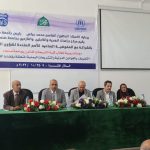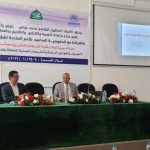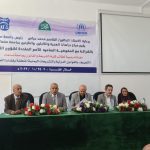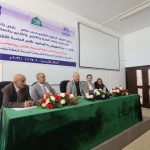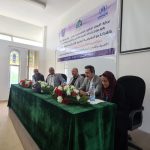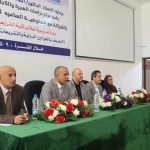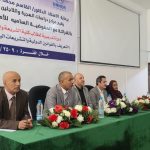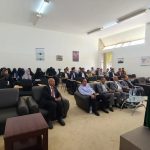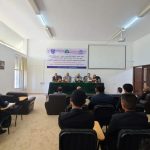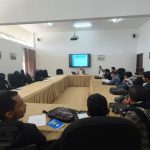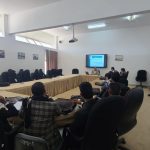Report on the opening of the training course for the students of the Faculty of Sharia and Law – Sana’a University (familiarization with international laws and national legislation on asylum issues from 9 to 25/10/2022)
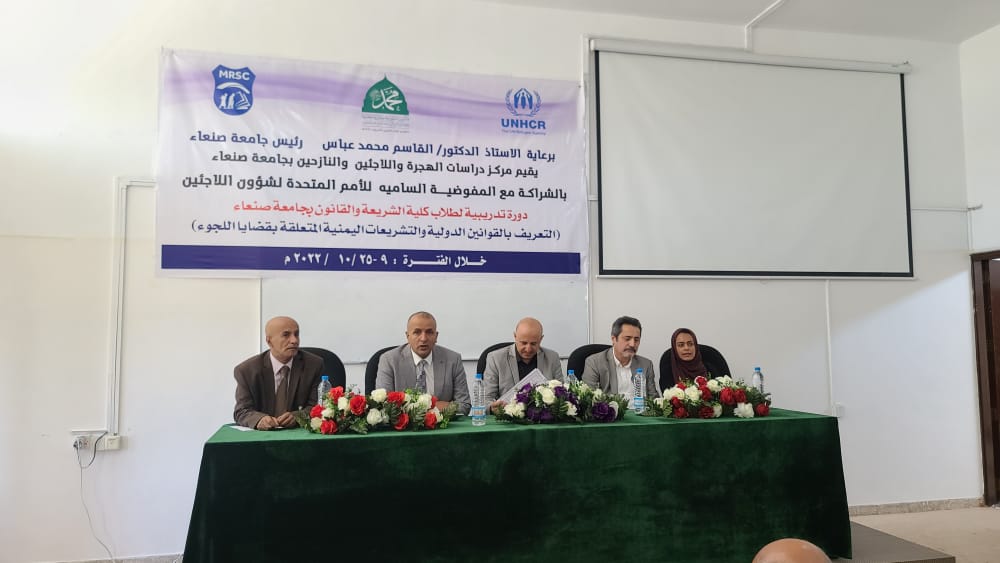
Report on the opening of the training course for the students of the Faculty of Sharia and Law – Sana’a University (familiarization with international laws and national legislation on asylum issues from 9 to 25/10/2022)
Sponsored by the Rector of Sana’a University. Dr. Al-Qasim Mohammed Abbas Migration, Refugees & IDPs Studies Center -Sana’a University, in partnership with UNHCR, opened the annual training course for “The students of the Faculty of Sharia and Law – Sana’a University (familiarization with international laws and national legislation on asylum issues for the period 9-25/10/2022. The event was opened by AMB.Dr. Ahmed Ali Al-Emad – Director of the MRISC with welcoming words for all attendees, headed by the Rector of the Sana’a University Dr. Al-Qasim Mohamed Abbas, official sponsor of this important and qualitative event, from UNHCR Mr. Irag Mombardev-Deputy Representative of UNHCR and Mrs. Nouf Al-Hashemi-assistant officer of UNHCR’s protection department and from the Faculty of Sharia and Law, Dr.Tariq Al-Mujahid, former Dean of the Faculty and the Head of the Private International Law Department.
Dr. Ahmed Ali Al-Emad-Director of the MRISC explained that this workshop is a complement to several workshops conducted by the MRISC for various official bodies such as the judiciary and security and several different bodies aimed at discussing and touching some topics that we may have missed in teaching courses over the past 4 years, it is important that the law graduate should be recognize and interact with asylum cases b/c it’s a Yemeni issue. Yemen is one of the most numerous and successive countries in the world with regard to illegal refugees who come to Yemen to stay or passage from other countries, from this side the participants must learn about the issues of asylum and international law that govern it and where our national challenges stand and what rights and obligations we have in this area.
He added that this session is a 14-days intensive session. We pride ourselves on the fact that our selection of distinguished professors from the Faculty of Sharia and Law who attach great importance to this workshop. During this course there will be a (moot court) aimed at applying what was learned in the workshops, and with reference to the outputs of the previous workshops, we found that approximately 40 to 50% of them have been accommodated in a number of international projects and functions related to the protection of refugees, we take pride in this and we encourage it so we ask the UNHCR to provide and support organizations working with these special national cadres. MRISC proud of having competencies as cadres who can add a useful experience in this field.
Our partners from UNHCR have promised that they will provide the MRISC’s library many new releases in the coming days, also they will give the MRISC,s library access to websites with tens of thousands of books exchanged on websites, It is an opportunity for participants to make the Center’s library a friend of them, as it is equipped with computers directly linked to the internet and will soon be activated as an (electronic library) and will be easily accessible to various websites to search and benefit.
From his part, Mr. Iraj Mompardev-Deputy Resident Representative of UNHCR, stressed that the protection of refugees is a universal collective responsibility, and Islam embraces people of different races and nationalities. Islam’s ideas of asylum and refugees reflect the universality of this religion.
He commended the people and the Yemeni authorities, which had been hosting refugees and asylum-seekers for years in generosity and providing protection and support to people fleeing violence and persecution “This is particularly commendable, at times when Yemenis are experiencing a protracted humanitarian crisis and have multiple needs.”
He emphasized that such academic courses were crucial in enhancing knowledge on asylum issues, and the role of law students and academics was essential by ensuring that interpretations of law and policy were consistent with the 1951 Convention and its Protocol and with customary international law. UNHCR welcomes the participation of academic institutions, scientists and professors interested in teaching and research on forced displacement, which is largely in line with the Global Refugee Compact and our concept of multi-stakeholder and partnership, in which academia plays an important role. We hope that students will benefit from this workshop and continue their interest in studying and researching this field through the MRISC and its library.
From his part the former Dean of the Faculty of Sharia and Law and The Head of the Department of Private International Law, Dr. Tariq Al-Mujahid commended the role of the MRISC representative by Dr. Ahmad Al-Emad, Director of the Centre, who resurrected the Centre and restored it and became as you see it today after it almost ended or faded and this annual session is a proof, which is being held today in its fourth consecutive session, which has not been on the Centre’s agenda before. More importantly, the MRISC has a specialized master’s degree programme in migration, asylum and laws such as general law and comparison with migration, asylum and statelessness.
He stressed that one of the general and fundamental issues is the library, which we hope will soon become an integrated library (paper and electronic) in order that the master’s programme will fulfill its objective and all the objectives and its activities of the center, which will be achieved only through the integration of the library.
In conclusion, was the speech of ” Dr. Al-Qasim Mohammed Abbas, Rector of the University, began by welcoming all those attendees and congratulating them on the “Birth of the Prophet ” calibration, and noted that based on our commitment to the 1951 Geneva Convention, international humanitarian law and the 1967 Protocol, Yemen is one of the signatories to the Convention and its Protocol.
Despite the difficult circumstances that Yemen has experienced previously and during the years of aggression, it adheres to the provisions of the Convention and the paragraphs of this Law, based on the principles of Islam and the principles of fulfilling the covenants, it receives hundreds of thousands of refugees, which causes it many problems facing Yemen in the field of security, livelihood, economy and at all levels. We thank UNHCR and international workers for the considerable efforts made in this regard and hope that there will be more effective and serious efforts in the field to resolve this problem.
He explained that through Sana’a University which is representative by MRISC, which is considered a “bright candle” in the sky of the Sana’a University and at the national level as a specialized academic center to address problems related to refugees, we always believe that science is the only way to solve all these problems, and also we do not have the physical or legal possibilities or authority, but we have the information that the decision-maker benefits from -in all directions and in all spheres- whether at the level of State administration, at the level of humanitarian workers in the United Nations or NGOs, which this aspect pays a large part of their attention, and even donors pays a large part of their attention of it also.
Through this course, graduates will be made aware of international humanitarian law with regard to refugee protection law and will be briefed on all humanitarian and other laws, particularly asylum laws because we face refugees everywhere, including hundreds of thousands on the road, in shops, hospitals, schools, etc…, and we cannot deny their presence or say that they are inactive, they have rights and at the same time they are an obstacle to the local labour force, this point must be examined from this angle, and we rely on you whether the participants in this course or as master’s students and soon the doctoral students at the center and also through projects such as the center’s library project and other future projects in this context, we will start with practical realities and study the dimensions of this phenomenon, we will inform the competent authorities of proposals and recommendations that will later be translated as actions on the ground.

